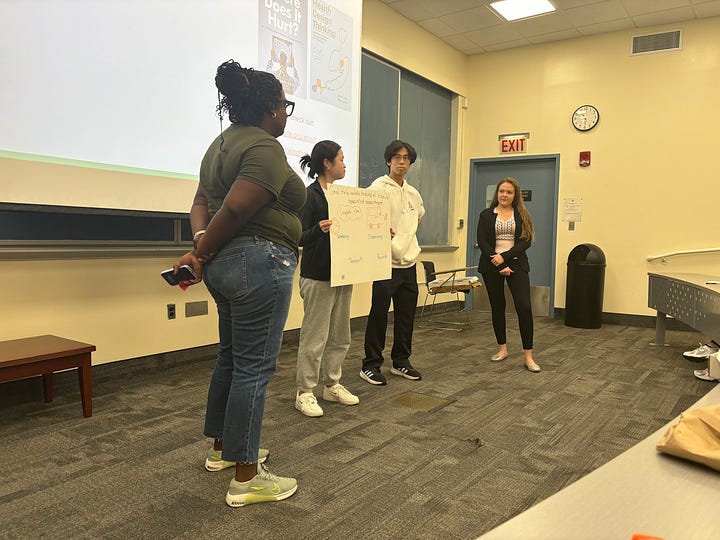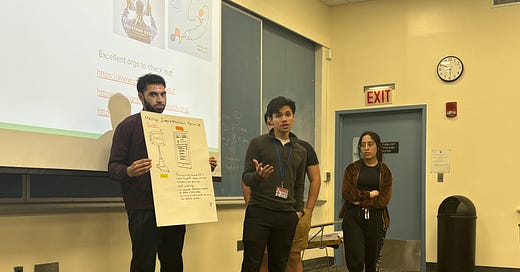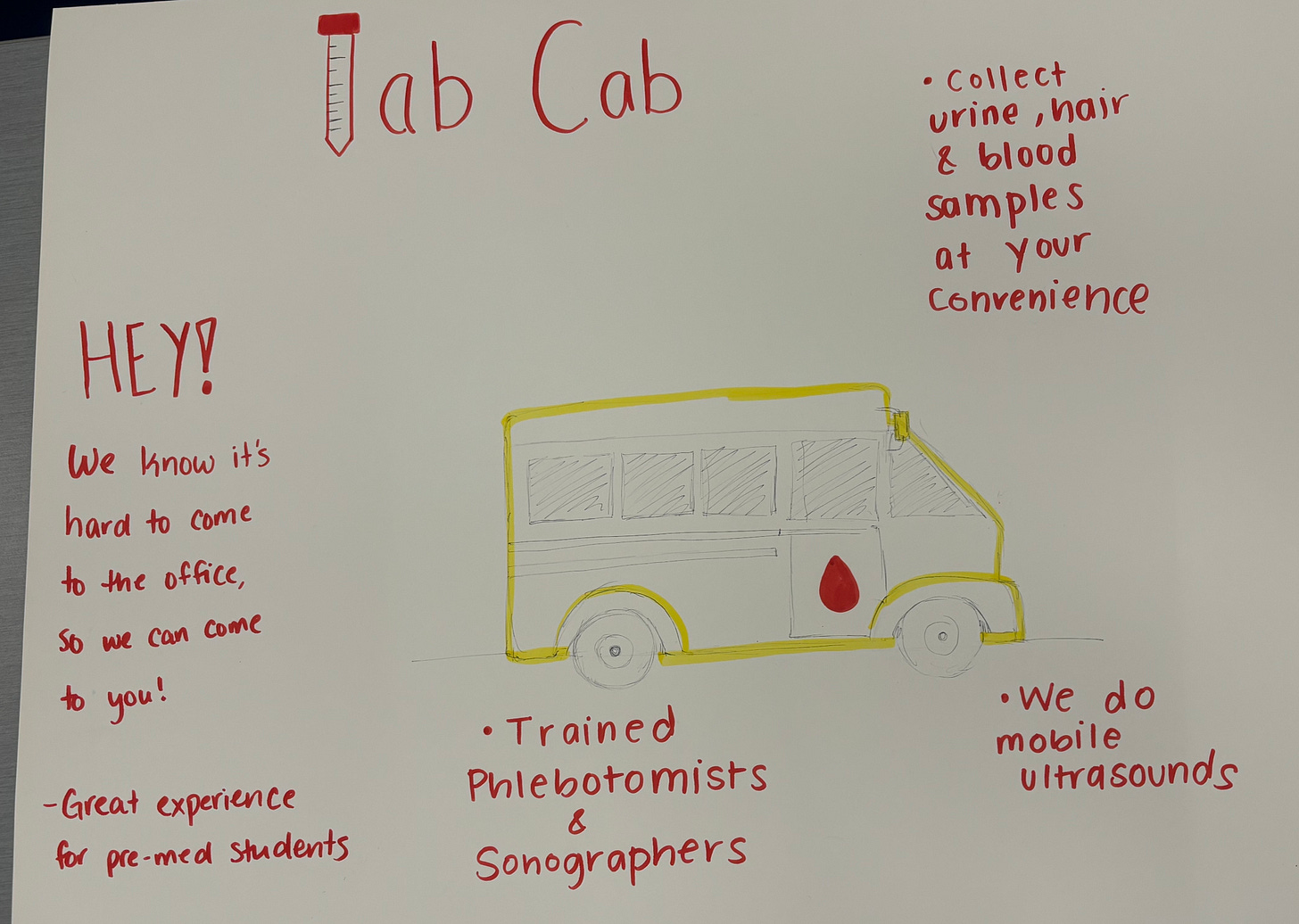Ideating Patient-Centered Solutions at Downstate's Medical Entrepreneurship Innovation Workshop
At our second Innovation workshop hosted by the Medical Entrepreneurship Club at SUNY Downstate, we aimed at sparking creativity among medical students. This event aimed to build on our mission to ensure that students who are interested in the intersection of medicine and business have a platform to learn, pursue their ideas and passions, and build connections in the field.
I launched a pilot of the Healthcare Innovation Workshop last semester and wrote on our curriculum and content here adapting exercises from the book Health Design Thinking by Dr. Bon Ku and Ellen Lupton.
The second time around was just as much of a success as we encouraged students to think creatively about solutions to patient problems to not only emphasize the importance of addressing bottlenecks and streamlining care delivery but to think about the customer or end user from the very beginning of the ideation process.




Several standout projects emerged, demonstrating how students are already applying their unique perspectives as future healthcare providers to real-world challenges. One such project was Lab Cab, a mobile lab service designed to collect blood and other biological materials directly from patients at their homes. Recognizing the transportation barriers faced by many, especially those with physical disabilities or those living in rural areas, the students created this mobile solution to bring essential lab services directly to the patient. They also designed the truck to have traveling ultrasound machine aimed at patients unable to visit hospitals or labs due to mobility restrictions, ensuring that diagnostic services are more accessible.
Another exciting concept developed at the workshop was Health Fresh, a tech-enabled food delivery service that packages and delivers affordable boxes of ingredients and recipes specifically tailored to a patient’s nutritional needs. The service takes into account different medical conditions and dietary requirements, providing patients with easy-to-prepare, prescription meals. Health Fresh is especially targeted toward food-insecure patients, allowing them to maximize their finances while maintaining healthy eating habits that align with their medical conditions. This kind of innovation is crucial for addressing social determinants of health, such as food insecurity, while offering a practical, scalable solution.
The workshop also gave rise to Senior Smiles, a tech-enabled inpatient service that flags elderly patients with social issues who are being admitted to the hospital. The service pairs these patients with a coordinator who helps them communicate with healthcare providers, inform their families, and manage their financial and social services needs. In addition, Senior Smiles provides in-hospital companionship buddies to help elderly patients navigate what can often be long and isolating hospital stays. This initiative focuses on human-centered design, ensuring that elderly patients receive not just medical care but the emotional and social support they need.
These student-driven solutions reflect the kind of innovative thinking we are striving to cultivate through workshops like this. By encouraging students to develop real-world solutions, we are equipping them to be proactive problem solvers, capable of transforming patient care in meaningful ways. From mobile diagnostics to personalized food delivery and enhanced elder care, the students' projects show the power of combining medical knowledge with a human-centered, entrepreneurial mindset.
Ultimately, the mission of the Downstate Medical Entrepreneurship Club is to prepare students to be innovators as well as clinicians. By focusing on early exposure to design thinking and entrepreneurial principles, we are planting the seeds for a future in which students will not only treat patients but also actively shape the future of healthcare delivery.







